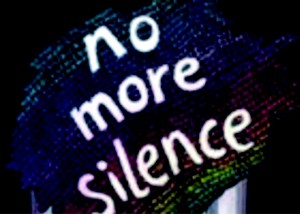| Home - Back Issues - The Team - Contact Us |
 |
| Volume 10 |Issue 26 | July 08, 2011 | |
|
|
Reflections Domestic Violence Irene Khan
The public outrage about Rumana's case will come to nothing if we are not willing to confront the complicity of state and society -- through laws and values -- that feeds widespread gender violence. The gruesome attack on Rumana by her husband is not an isolated incident. According to the UN 46 percent of the women in Bangladesh are victims of domestic violence. Hardly a day passes without a newspaper report of yet another dowry death, an acid attack, a housewife murdered by her husband or in-laws, or driven to suicide by their oppressive behaviour. Hit a woman on the street and a crowd will gather to protest. Beat her to pulp in her own home, the neighbours will avert their eyes and her own family will counsel her to remain silent and be a good subservient wife. Not surprisingly, few cases are reported to the police, and fewer still prosecuted successfully. If a highly educated and economically independent woman like Rumana could be cowed into submission, imagine how much more vulnerable are poor women in villages and small towns where men dominate the family and community, and religious vigilantes police social behaviour. Gender violence is a brutal assertion of male power over a woman in the arrogant knowledge that the man can “get away with it”. It thrives in an environment of impunity and unequal gender relations. In the context of Bangladesh, the law - far from equalising power - skews it in favour of men. The subjugation of women is deeply ingrained in our culture, custom and religious values. Those patriarchal social norms are reinforced by the legal system.
No one of them wanted to file a criminal complaint, notwithstanding the Women and Children's Prevention of Violence Act and the availability of free legal aid from BRAC. They feared the police case would drag on and they would get no justice. Meanwhile their husbands would take away their children, delay divorce proceedings and block payment of their dower. Criminal law cannot protect women from domestic violence when personal law discriminates against them. The Constitution of Bangladesh declares equal rights for men and women in all spheres of public life. But in the private or personal sphere religious laws apply. Under that system - whether Sharia or Hindu or Christian laws - women are treated as unequal and inferior to men. So, in matters of marriage, divorce, child custody and inheritance they are severely disadvantaged. The Constitutional guarantee of equality for all persons is a hollow promise because through the operation of religious personal law women are denied equal protection of the law. The State steps in when a woman is battered to death - or blinded in Rumana's case- because it is a matter of criminal law. But when a man beats his wife and throws her out on the street, what kind of justice allows the perpetrator to stay and the victim to become homeless? How can a woman protest against her husband's cruelty when she fears she will lose her children and her marital home? Is it any surprise that women are unwilling to seek redress and that men are emboldened by the impunity? If the Constitution acknowledges the equality of all citizens, how can it let a woman be a second class citizen in her own home? In a secular state like Bangladesh, the Constitution's equality provision should prevail in the personal as well as the public sphere. The government must bring in a uniform Family Law that would put all women in this country on an equal footing with men, and respect international human rights standards. For many years women's groups in Bangladesh have been demanding a Uniform Family Code. The National Policy on Women is a step in the right direction but it is not enough. Admittedly, laws alone will not end domestic violence. But full legal equality will go a long way to empower women to speak up, support them when they seek justice and give them the redress they need. Ending legal discrimination will also set a new tone to social values and challenge social discrimination against women. It's high time to end to the legal hypocrisy and social complicity in gender violence. Copyright
(R) thedailystar.net 2011 |

 During a visit last week to a legal aid clinic run by BRAC in Tangail, I met several women who said their husbands had taken second wives and when they complained they were abused, beaten and forced out of their marital homes. One woman had been hit so hard that she had suffered spinal injuries.
During a visit last week to a legal aid clinic run by BRAC in Tangail, I met several women who said their husbands had taken second wives and when they complained they were abused, beaten and forced out of their marital homes. One woman had been hit so hard that she had suffered spinal injuries.